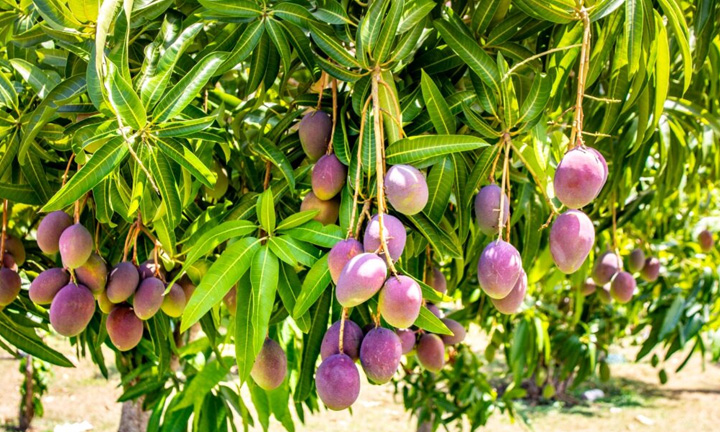SOURCE: Catherine McGeer, Euroweeklynews
Malaga’s mango season is expected to shrink significantly this year, with production anticipated to drop by 70 per cent compared to regular seasons. The Spanish Tropical Association reports that the province will yield around 12,000 tons of mangoes, a substantial decrease attributed to ongoing water shortages and challenges during critical flowering periods.
Reduced Mango Supply May Boost Fruit’s Market Value in Europe
Despite the lower production, the association is optimistic that the reduced supply will lead to a higher appreciation of the fruit, boosting demand both nationally and within the European Union. Málaga remains the top mango producer in the EU, accounting for 85 per cent of the total production. This year, efforts are focused on strengthening the brand’s presence in key European markets like France, Germany, and Italy, as well as expanding into Eastern Europe.
The campaign is set to last until early autumn. Meanwhile, the association is seeking research funding to address flowering issues and hopes to secure Protected Geographical Indication status for Málaga mangoes in the near future.
Understanding the Drought’s Impact on Mango Production
Málaga, known for its significant mango cultivation, is facing severe drought conditions this year. A drought is a prolonged period of abnormally low rainfall, leading to a scarcity of water resources essential for agriculture. For mango trees, which are sensitive to water stress, these conditions pose several critical challenges.
1. Water Shortages: Mango trees require a consistent supply of water, particularly during key growth phases. Adequate moisture is crucial for proper flowering and fruit set. The ongoing drought in Málaga has drastically reduced water availability, affecting the trees’ ability to produce fruit.
2. Flowering and Fruit Development: Mango trees undergo a critical flowering period, where they develop the flowers that will eventually turn into fruit. Insufficient water during this stage can lead to poor flowering or even complete failure to bloom. This directly results in a lower fruit yield.
3. Fruit Quality: Drought stress can also impact the quality of mangoes, affecting their size, flavor, and overall appearance. Mangoes produced under drought conditions may be smaller and less sweet, which can influence market prices and consumer preferences.
4. Long-Term Soil Health: Prolonged drought can lead to soil degradation, reducing its fertility and water retention capacity. This can have long-term effects on mango cultivation, making it even more challenging to maintain healthy orchards and produce high-quality fruit in future seasons.
Addressing these challenges requires a multifaceted approach, including investing in water conservation technologies, improving irrigation practices, and exploring drought-resistant mango varieties. The Spanish Tropical Association’s efforts to secure research funding and seek Protected Geographical Indication status are crucial steps toward ensuring the long-term sustainability of Málaga’s mango industry.

